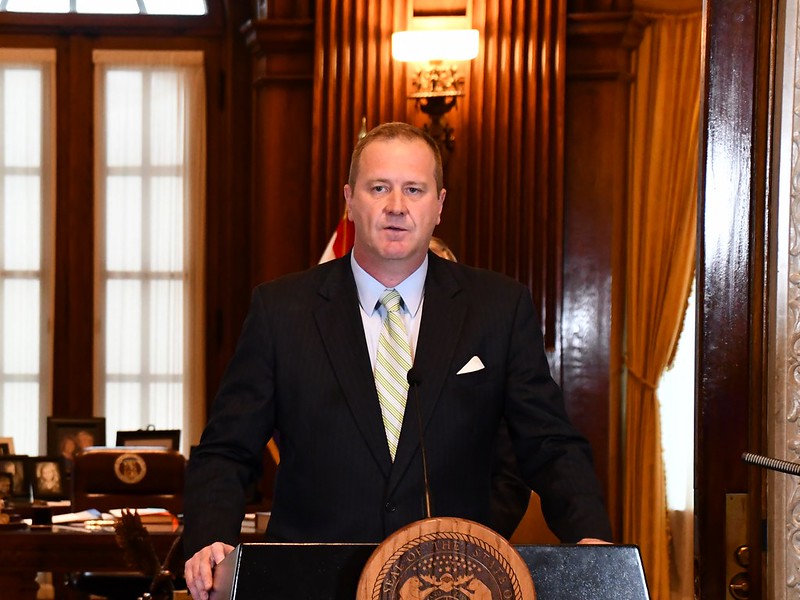Attorney General Eric Schmitt is opposing efforts to revise the federal Navigable Waters Protection Rule enacted under the Trump administration.
The 2020 edict altered the 2015 Waters of the United States rule, lessening the federal government’s authority to regulate pollution in wetlands and certain streams. Environmental Protection Agency (EPA) Administrator Michael Regan and the Army Corps of Engineers announced their intention to revise the rule last week, saying the move was prompted by claims that the current version was causing harm to local governments and organizations.
Schmitt sent a letter to Regan and Jaime Pinkham, acting assistant secretary of the Army for civil works, opposing the move. Schmitt argued the groups were exceeding their statutory authority through their definition of “waters of the United States” by attempting to regulate private property.
“Missouri’s farmers and ranchers have been tending to their land for generations. They don’t need another federal government land-grab threatening their livelihood and ability to make a living,” Schmitt said. “President Obama’s Waters of the United States rule was a disaster for Missouri’s farmers, ranchers, and small businesses – we cannot return to that level of unprecedented federal overreach and intrusion.”
Schmitt pointed to a 2006 case in which the U.S. Supreme Court found the agencies’ definition of their jurisdiction had increased over the past three decades to include “storm drains, roadside ditches, ripples of sand in the desert that may contain water once a year, and lands that are covered by floodwaters once every 100 years.”
Schmitt’s move garnered the support of the Missouri Farm Bureau President Garrett Hawkins, who said any actions pushing the limits of the rule would not go without challenge.
“We are extremely disappointed — but at the same time, not surprised — that we are going to have this conversation yet again about the boundaries between what is federal jurisdiction and what is left to the states,” Hawkins told The Missouri Times. “Overturning changes that were made by the previous administration demonstrates the Biden administration’s disregard for not only those whose jobs depend on working lands, but the rule of law under which these regulations have been unsuccessfully challenged.”
Hawkins said 99 percent of Missouri land would have fallen under federal regulation through the Obama administration’s version of the rule.
“I expect farmers, ranchers, and other Missourians will be ready to fully engage in this discussion that the administration is kicking off,” he continued.
According to Hawkins, the current rule was enacted based on inputs from hundreds of thousands of stakeholders. The American Farm Bureau backed the Trump administration’s version of the rule when it was enacted, praising the leeway for landowners to preserve their own land.
On the other side of the argument, Regan said the revision would allow the government to prevent environmental degradation.
“We are committed to establishing a durable definition of ‘waters of the United States’ based on Supreme Court precedent and drawing from the lessons learned from the current and previous regulations, as well as input from a wide array of stakeholders, so we can better protect our nation’s waters, foster economic growth, and support thriving communities,” Regan said in a statement.
Schmitt has weighed in on the federal government numerous times over the past year, from similar letters to pending lawsuits against the new presidential administration. He recently joined other attorneys general on a letter opposing the appointment of David Chipman to lead the Bureau of Alcohol, Tobacco, Firearms, and Explosives (ATF).

Cameron Gerber studied journalism at Lincoln University. Prior to Lincoln, he earned an associate’s degree from State Fair Community College. Cameron is a native of Eldon, Missouri.
Contact Cameron at cameron@themissouritimes.com.





























